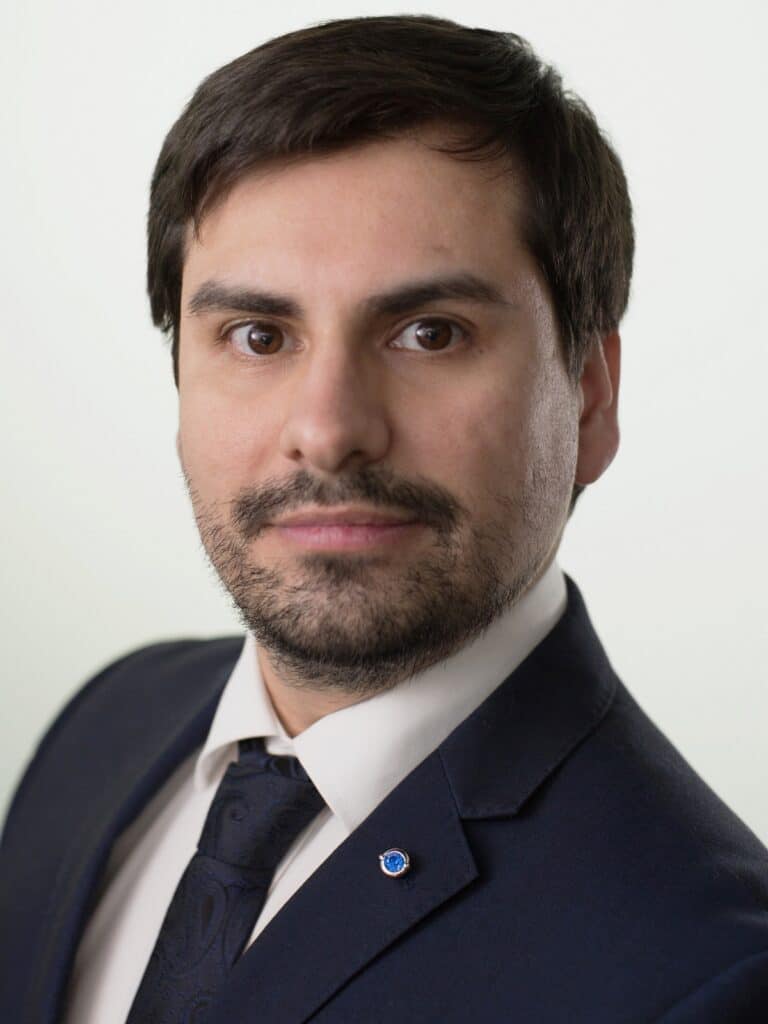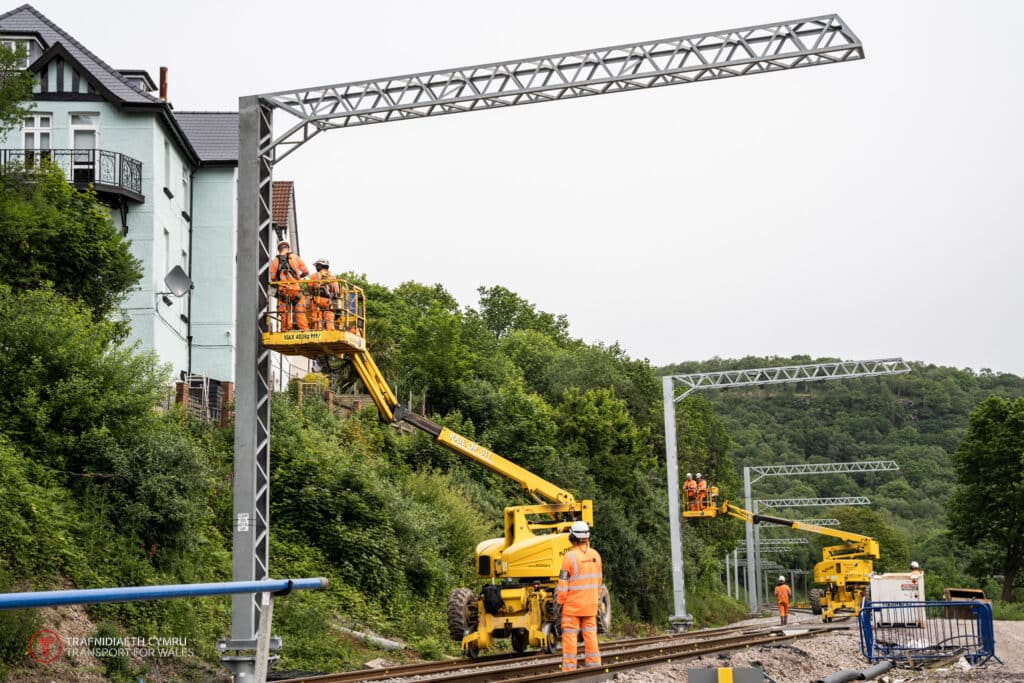Transport for Wales is transforming Welsh transport and has become an unlikely superhero for the people of Wales. PMG speaks to Programme Manager (Entry into Service) Michael Scott Evans, hot off his team’s win for Project of the Year, at the Association for Project Management’s annual industry awards.
Preparing for critical blockades to major infrastructure, to allow for complex maintenance activity, is one of the most challenging feats in engineering.
These blockades, often shutting down entire sections of operational infrastructure, require months of meticulous planning, pushing project and engineering capabilities to their limits.
The teams involved are ensuring that the right resources are in place at the right time, assessing risks, developing contingencies, forecasting plant and machinery needs, and most importantly ensuring the safe implementation of system shutdowns, works execution, and operations restarts.
These critical events demand expert project management application.

Speaking with Michael Scott Evans, a Programme Manager (Entry into Service) for Transport for Wales (TfW), it’s evident that this expertise was instrumental to the success of the recent annual Christmas and New Year blockade of Welsh train services.
Our conversation provided invaluable insights into the professionalism, exceptional levels of stakeholder engagement, and innovative leadership that has become synonymous with TfW.
Created to manage the complex relationship between the Welsh Government and the Wales and Borders rail franchise, one of TfW’s most pressing tasks has been to drive investment back into a woefully underfunded network and reconnect train services with the communities they serve.
“TfW isn’t solely about delivering train services, although that’s a significant part of our role,” Michael explained. “We’re delivering a much bigger vision for the people of Wales, centering on a multi-modal approach. Connecting buses, cycling, walking, wheeling, tramway, and train services and creating a single, integrated service.” This ambitious objective has captured the hearts of the Welsh people. Clearly reflecting the desire for change across communities.
While these long-term aspirations fuel the organisation’s drive, the daily reality of running passenger trains, demands delivering the best and most reliable services possible. “We work within the framework of government policies and legislative decisions,” Michael continued, “but our job is to ensure their successful implementation and translation into a safe and reliable infrastructure.”
How Does Project Management Underpin TfW’s Delivery Plans?
“Everything within our delivery program is captured on a product matrix,” Michael explained. “This provides complete oversight, not just of what needs to be done, but also the required collateral, the stage of delivery, and who is ultimately responsible for sign-off, endorsement, and execution.” It’s textbook project management!
“This approach minimises points of failure – those single moments when projects go wrong, now or in the future” Michael continued. “Getting the basics right is paramount: good document control, robust governance, effective decision-making forums, and proactive stakeholder management. Ultimately, I strive for the clearest possible line of sight over everything that can impact my project’s success.”
As we explored deeper into the approach that Michael implements, his focus on the core tenets of good project management became evident. “I constantly conduct a forensic-level assessment of where my projects and programs stand in relation to the models constructed during the planning process,” he says. “It’s an ongoing task – assessing, reevaluating, and ensuring nothing falls outside the project’s control parameters.”





Balancing Inconvenience with Societal Impact
Balancing the inevitable inconvenience of infrastructure development is crucial. Significant change often causes short-term hardships, such as environmental damage, disruption to existing infrastructure and services, and even financial constraints that may detract from other essential areas like education, healthcare, and housing.
However, TfW is tapping into a “latent force for change” in Wales. This is a once-in-a-generation opportunity for societal transformation. By working closely with the community, TfW has garnered understanding and support for the necessary changes, even with the associated short-term challenges.
Innovation and Technological Advancement
There’s a strong commitment to getting major infrastructure changes right the first time. This includes the central premise of only installing proven technology. “It’s simply too important to trial new or unproven technologies,” Michael emphasised. “Anything migrated onto our infrastructure must be fully tested before operational use.”
This doesn’t equate to a lack of innovation, however. A prime example is TfW’s solution to the mountainous topography of Wales. The Core Valley Lines Transformation programme employs a cutting-edge approach that allows rolling stock to adapt to permanent earth sections, effectively transitioning locomotive power from diesel to battery to electrification.
Innovation extends beyond this. TfW is implementing BIM 360 for more efficient project modeling in a virtual environment and utilising smart technology within its central PMO to optimise project sequencing and prioritise activities across programmes and the overall portfolio.
A Multi-Modal Approach for a Better Future
TfW’s multi-modal approach necessitates effective project and programme management. The organisation learns in real-time, continuously incorporating efficiencies and improvements as it progresses.
TfW is rapidly evolving, shaping the future for the Welsh communities it serves. Its multi-phased plan includes the introduction of hydrogen buses as the organisation expands its focus beyond rail, truly embracing its vision for a fully interconnected multi-modal transport solution for Wales.
In the widest sense TfW isn’t just delivering projects; it’s delivering change for the people of Wales and a better future for society. In implementing its holistic approach to project management, TfW is demonstrating how infrastructure development can be a catalyst for positive societal transformation, at the heart of creating a more connected, sustainable, and prosperous Wales for generations to come.

Micheal Scott Evans ChPP FAPM, is a Chartered and Fellow Project Professional who has worked in project management for over 20 years . He has been part of the Senior Management Team since 2020. His passionate leadership of the Project and Programme Management service has not only led to numerous successful projects being delivered, but also a growing recognition of excellence in project management delivery. Including Transport for Wales being the recent recipients of the Association For Project Management, award for Project of the Year (2024) for their work on the South Wales railway Core Valley Lines Transformation Programme. This £1.5 billion project involved electrification of over 170 km of track , installation of new signaling systems, commissioning brand-new trains, station upgrades, and even the development of two newly built stations. The project’s focus on social good, as well as excellence in project delivery made TfW the stand out nomination on the night. You can find out more about Micheal through his LinkedIn connection here.
Transport for Wales (TfW) is a not-for-profit company owned by the Welsh Government. It is responsible for the planning and delivery of transport services in Wales, including rail, bus, and active travel. TfW aims to improve connectivity and accessibility across Wales, promote sustainable transport, and support the Welsh economy.










